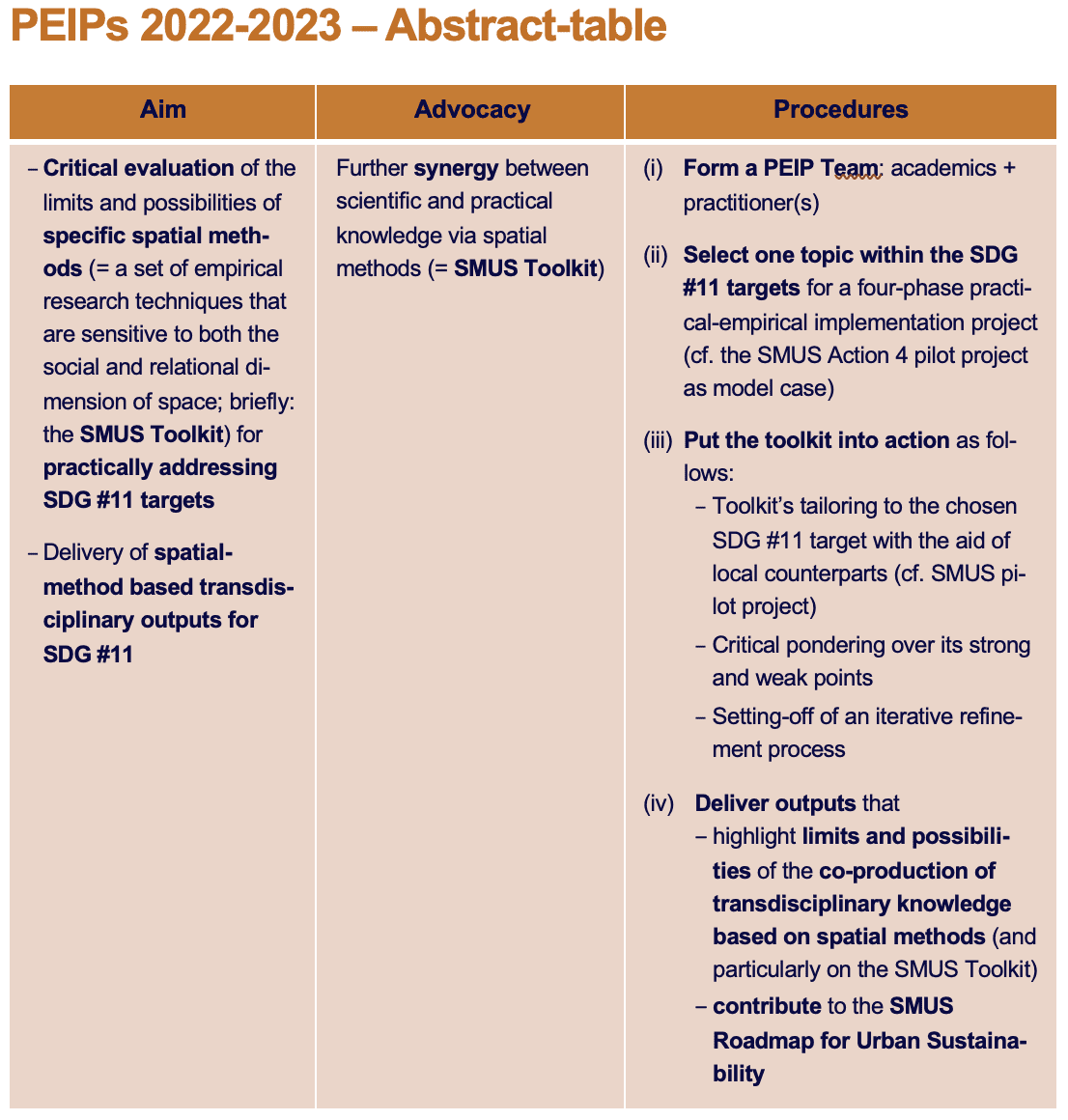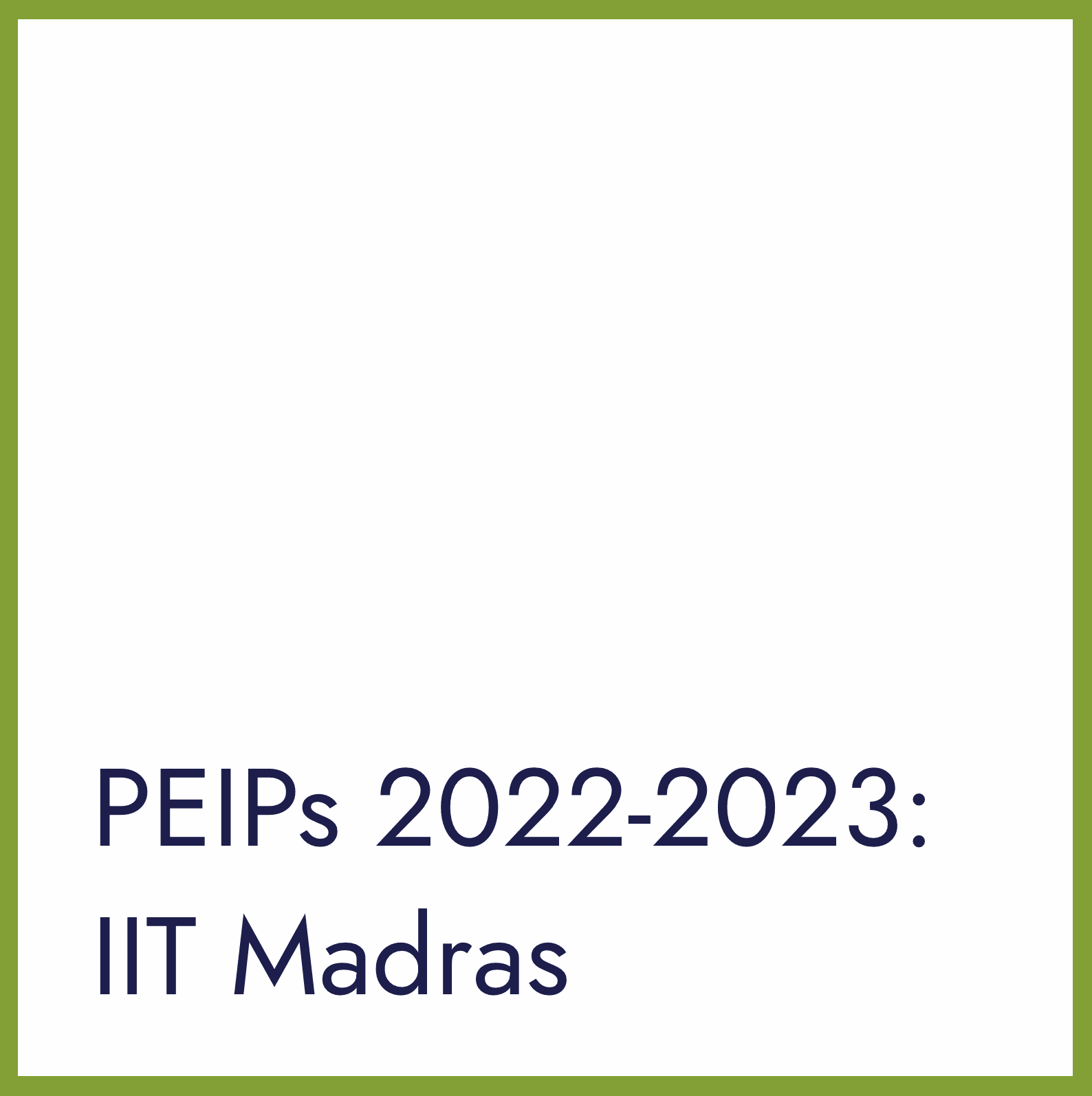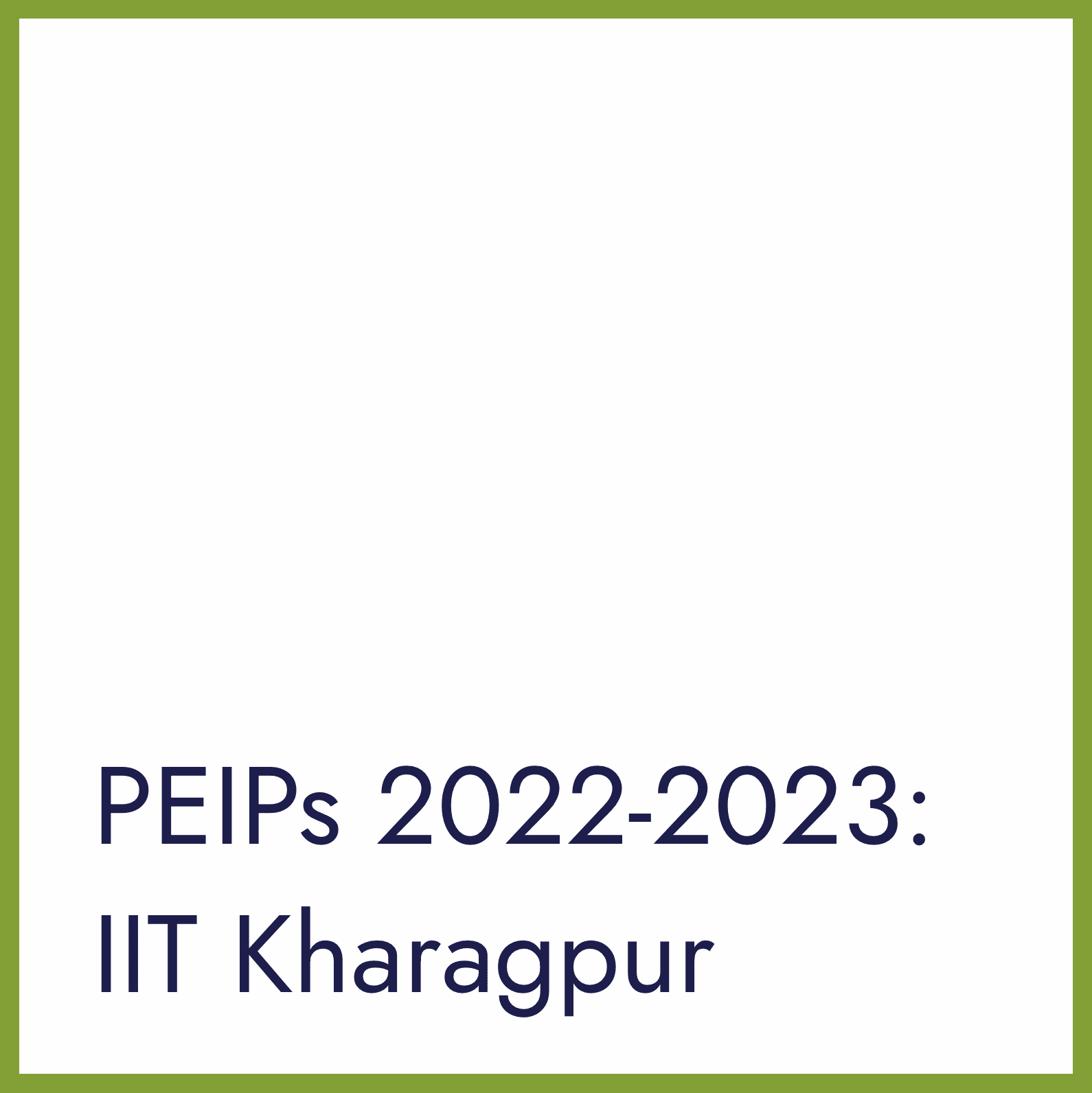Building on a principle of transdisciplinary exchange, the Practical Empirical Implementation Projects that will be conducted between 2022 and 2023 (PEIPs 2022-2023) are aimed at: (i) critically addressing the potentialities and limits of the spatial-method toolkit as to the alternative view it offers both to practitioners and academics and (ii) delivering transdisciplinary outputs that contribute to the achievement of SDG #11 based on the use of spatial methods in general, and particularly on the SMUS Toolkit. The overall logic and sequence of action is summarized as follows:
-
Table 1. PEIPs’ aim, advocacy, and procedures at a glance (SMUS Action 4 Team)
To accomplish the general aim (depicted in Table 1) and hence to critically put into action the SMUS Toolkit, the two practical-implementation projects (PEIPs) will look into the everyday spatialities of the researched subjects (the SMUS empirical object) by making use of the SMUS Toolkit. To put it briefly:
This replication strategy aims to ensure comparable methodological consistency between these two PEIPs in view of the SMUS model-case pilot project and of the three PEIPs planned to be executed during 2023. Therefore, members of the PEIP-teams are expected to deliver and engage in critical exchange on mutually comparable outputs regarding the critical use of the SMUS Toolkit. To that end, workshops are organized and main results would eventually be incorporated in a contribution for a co-edited book (see Timetable).










